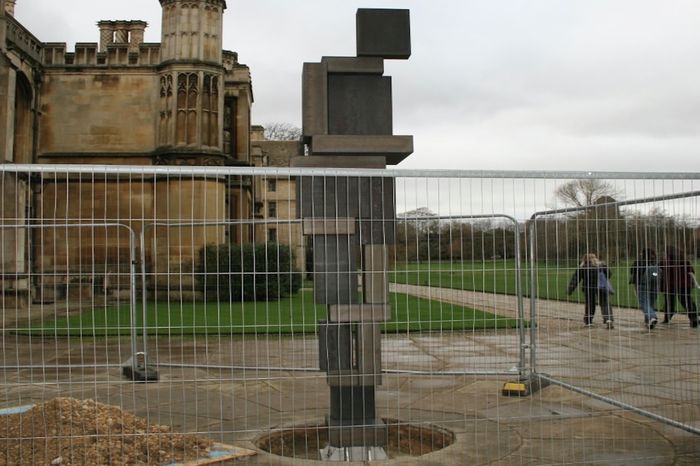King’s saves rare Turing papers from export
Almost lost to an international buyer, King’s has made the documents accessible to the public at the Turing Archive

A rare set of handwritten notes from Alan Turing’s covert WWII Delilah project have been acquired by King’s College after nearly £400,000 was raised to prevent their export.
These previously unpublished notes remained in the UK following a government-imposed temporary export ban in August 2024 after almost being lost to an international buyer in a private sale at £397,680.
King’s, the College from which Turing graduated with a degree in mathematics in 1934, collaborated with algorithmic trading firm XTX Markets, Friends of the National Libraries (FNL), the National Heritage Memorial Fund, and private donors to purchase the notebooks.
They have been linked to the little-known Delilah project, a top-secret wartime effort to develop a portable voice encryption device. The project began in 1943 at Hanslope Park, following Turing’s work cracking the Enigma code at Bletchley Park.
The documents are over 40 pages long, with handwritten notes including detailed technical entries, experiments, and lecture materials co-authored by electrical engineer Donald Bayley. The notes were described by the government as “among Turing’s most inventive, secret, and overlooked work”.
King’s College provost Gillian Tett stated: “Alan Turing’s work laid the foundation of computer science, artificial intelligence, and much of our modern world. We are honoured to house the Delilah papers and are deeply grateful to our partners in this endeavour.”
Georgie Greig, Chair of the FNL and Editor-in-Chief of The Independent, described the acquisition as “a brilliant collaboration between XTX Markets and King’s College, a centre of academic excellence, to save our heritage”.
The documents are a significant addition to King’s Turing Archive, which was established in 1960 after his mother, Sara Turing, donated his papers to the college.
The notebooks will be digitised and added to the Turing Papers online archive, making them easily accessible globally to students, scholars, and historians.
In January last year, King’s unveiled a memorial sculpture honouring the mathematician, despite criticism from Historic England.
Want to share your thoughts on this article? Send us a letter to letters@varsity.co.uk or by using this form.
 News / Uni to ‘review’ tripos rankings and weekend lectures in undergrad teaching overhaul10 April 2025
News / Uni to ‘review’ tripos rankings and weekend lectures in undergrad teaching overhaul10 April 2025 News / Rowing row continues as Oxford and Cambridge scrap women’s trial race9 April 2025
News / Rowing row continues as Oxford and Cambridge scrap women’s trial race9 April 2025 Comment / Death of the June Event?9 April 2025
Comment / Death of the June Event?9 April 2025 Features / Cambridge: where toxic productivity turns rest into a radical act8 April 2025
Features / Cambridge: where toxic productivity turns rest into a radical act8 April 2025 News / Under 3% of applicants for Cambridge academic jobs are successful7 April 2025
News / Under 3% of applicants for Cambridge academic jobs are successful7 April 2025






